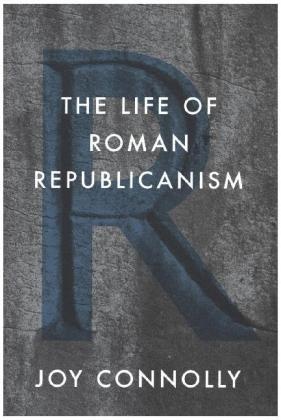Read more
In recent years, Roman political thought has attracted increased attention as intellectual historians and political theorists have explored the influence of the Roman republic on major thinkers from the Renaissance to the Enlightenment. Held up as a "third way" between liberalism and communitarianism, neo-Roman republicanism promises useful, persuasive accounts of civic virtue, justice, civility, and the ties that bind citizens. But republican revivalists, embedded in modern liberal, democratic, and constitutional concerns, almost never engage closely with Roman texts. The Life of Roman Republicanism takes up that challenge.
List of contents
PREFACE IX ACKNOWLEDGMENTS XVII INTRODUCTION 1 1 Where Politics Begins: Cicero's Republic 23 2 Justice in the World: The Execution of Jugurtha 65 3 Non-Sovereign Freedom in Horace's Satires 1 115 4 Dividual Advocacy 155 5 Imagination, Finitude, Responsibility, Irony: Cicero's pro Marcello 173 CONCLUSION The Republic Remastered 203 BIBLIOGRAPHY 209 INDEX 219
About the author
Joy Connolly is dean for the humanities and professor of classics at New York University. She is the author of The State of Speech: Rhetoric and Political Thought in Ancient Rome (Princeton).
Summary
In recent years, Roman political thought has attracted increased attention as intellectual historians and political theorists have explored the influence of the Roman republic on major thinkers from the Renaissance to the Enlightenment. Held up as a "third way" between liberalism and communitarianism, neo-Roman republicanism promises useful, persuasive accounts of civic virtue, justice, civility, and the ties that bind citizens. But republican revivalists, embedded in modern liberal, democratic, and constitutional concerns, almost never engage closely with Roman texts. The Life of Roman Republicanism takes up that challenge.
With an original combination of close reading and political theory, Joy Connolly argues that Cicero, Sallust, and Horace inspire fresh thinking about central concerns of contemporary political thought and action. These include the role of conflict in the political community, especially as it emerges from class differences; the necessity of recognition for an equal and just society; the corporeal and passionate aspects of civic experience; citizens' interdependence on one another for senses of selfhood; and the uses and dangers of self-sovereignty and fantasy. Putting classicists and political theorists in dialogue, the book also addresses a range of modern thinkers, including Kant, Hannah Arendt, Stanley Cavell, and Philip Pettit. Together, Connolly's readings construct a new civic ethos of advocacy, self-criticism, embodied awareness, imagination, and irony.
Additional text
"The book reminds us that the individual and the community are not two separate entities, but that we need to choose between participants in a never-ending conversation about how to live together, and Connolly seeks to give us some critical tools for participating in it."---Hannah J. Swithinbank, Journal of Roman Studies
Report
"As a demonstration of how reading Roman literature becomes absorbing political argument, this book succeeds brilliantly. Joy Connolly possesses a keen mind and her approach is informed by an astonishing stock of contemporary intellectual perspectives. She is also a deeply imaginative reader with a gift for explaining complex ideas lucidly and compellingly. I learned a great deal from this book: about Hannah Arendt and Philip Pettit as well as about Cicero, Sallust, and Horace."--Andrew Feldherr, Princeton University

